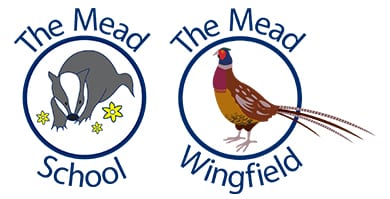Underpinning principles: Relational practice
By focussing on the relational aspects of teaching, we return to the essence of what defines a classroom. It is a space for learning, of course, yet in its optimal form, a classroom is also a space for individual and collective cognitive, emotional, social and moral growth. Damon, 2018, p21
Relational practice within our school is characterised by:
Genuine Interest, Knowledge and Understanding Adults take a genuine interest in the lives of all children and invest time in getting to know them and what is important to them. They build mutually respectful relationships that are founded in mutual trust, exploration, authenticity, connection, hope and reflection. Adults understand that trust and respect are built by ensuring any actions promised are undertaken, and questions, discussions and conversation are authentic, valuing the interests, opinions and ideas of all children. “When a teacher makes a student feel seen – and understood – it can lead to incredible learning…. When students sense their teachers know them as people, amazing things can happen.” (Damon, 2018)
Consistency and Security Adults understand that relationships are important to all children and that for some children relationships forged at school are the most consistent and secure in their lives. They understand that children may form a secure attachment to school as an extension of, or an alternative to, the (adversity) at home. Adults invest time and care in developing the physical and emotional environment to provide for this. Adults take time to ensure children feel supported, valued and ‘held in mind’. This may include ensuring children are prepared for periods of absence (meetings, CPD events etc), asking questions and showing interest in what they have been doing, supporting feelings of security by asking children to look after a personal item until the adult returns.
Climate and Culture Children are supported to understand that learning is not an individual cognitive activity. It is a social activity that is enhanced through collaborative and cooperative relationships, with both peers and adults. Children learn from, with and about each other establishing enduring relationships and experiencing the interconnectedness of all life experiences on a daily basis. All adults ensure that there is an authentic culture of mutual interest and respect, in the knowledge this supports children to feel motivated, optimistic and confident to take risks, make mistakes and build resilience.
Community Involvement Children are supported to engage in conversation, discussion and dialogue with adults, peers and visitors. Teachers understand that providing opportunities for rich dialogue supports children to develop social capital and mutual respect.
Reflection and Resolution Children are supported to develop the skills that enable them to reflect on and resolve relational issues. Adults support children to use restorative processes, which place a value on all views and opinions whilst helping children to understand the impact of their actions. Maintaining and developing positive relationships is placed at the heart of all reflection and resolution processes.
De-escalation Adults use a wide range of strategies to support de-escalation when children’s emotions are heightened. This includes distraction, offering choices with creativity and humour and deferring consequences when appropriate. Adults draw on their knowledge of individual children to ensure that approaches are personalised, non-threatening, support sensory sensibilities and as such children protect the strength of their relationship.
Positive Reinforcement and Targeted Praise All adults ensure that actions are praised and celebrated so that children feel good about something they have done well or achieved. Positive reinforcement may include a subtle smile, a wink or a thumbs. Adults ensure they use their knowledge of individual to respond to children’s personal preferences. For example, for those children who prefer not to have positive attention drawn to them. Adults ensure that any verbal praise is targeted, for example ‘Thank you for leaving the table tidy’, rather than using generic statements such as ‘Good boy’, as this may not match the image the child has of themselves.
High Expectations High expectations for behaviour, including behaviours for learning are based on the over-riding principle of consideration and care for others and are maintained by the consistent implementation of the behaviour curriculum and behaviour policy. When children make poor choices adults use a relational approach alongside the child to reflect on actions and identify potential methods of resolution. Consequences are always designed to effectively repair any damage to relationships or property.
Honesty and Integrity Adults ensure that they support a calm and peaceful environment by remaining calm and peaceful themselves. All adults understand that keeping calm will support a child who is heightened or anxious, as well as other children and adults around them. All adults will model the relational and behavioural expected in order that children see at first hand the impact of positive relational approaches. When adults have made mistakes or got things wrong they will always ensure they apologise to any adults or children affected.
References
Damon, N. (2018) The Enduring Power of Relational Teaching https://goop.com/work/parenthood/the-enduring-power-of-relational-teaching last accessed 12 July 2019
Damon, N (2018) Time to Teach. Time to Reach. Expert teachers give voice to the power of Relational Teaching. Relational School: Cambridge
